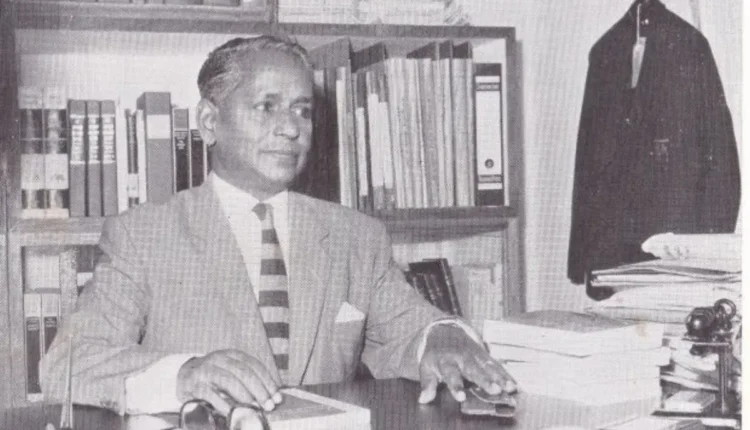D. S. Ramanathan’s name resonates in Malaysia’s history as a leader who envisioned a better future for education, governance, and society. Born into a Sri Lankan Tamil family, Ramanathan’s journey from a humble teacher to a trailblazing politician and educationist is one of resilience, determination, and profound impact. His legacy continues to inspire generations, and his contributions have left an indelible mark on Malaysia, particularly in Penang.
Early Life of D S Ramanathan: From Teacher to Advocate for Change
Born into a prominent Tamil family, D. S. Ramanathan’s life was rooted in values of education and service. He began his career as a teacher in Perak, quickly earning respect for his dedication and ability to inspire students. Recognizing the power of unity among educators, he played an instrumental role in the National Union of Teachers, serving as its president from 1959 to 1962, and as vice-president of the Malayan Teachers National Congress.
Through his leadership, D S Ramanathan championed teachers’ rights and advocated for educational reforms. These experiences shaped his perspective on governance and ignited his passion for serving the broader community.
A Pioneering Politician
Ramanathan’s transition from education to politics marked the beginning of a new chapter. As a founding member and chairman of the Labour Party of Malaya, he became a voice for the marginalized, championing social justice and equality. His tenure as the first mayor of George Town, Penang, in 1958 and 1959, was groundbreaking.
During this time, George Town was one of the most affluent municipalities in Malaya. Ramanathan’s leadership was marked by a commitment to transparency and good governance. However, his tenure was not without challenges. He boldly confronted allegations of corruption within the local council, which led to the establishment of the Athi Nahappan Commission to investigate inefficiencies in local government.
Despite facing opposition, D S Ramanathan’s dedication to the people remained unwavering. His shift from the Labour Party to the Malaysian Indian Congress (MIC) reflected his pragmatic approach to achieving his goals in an evolving political landscape.
Visionary Behind Universiti Sains Malaysia
D S Ramanathan’s most enduring legacy lies in his contribution to Malaysia’s education system. In 1959, he proposed the establishment of a university in Penang during a State Assembly session. His vision stemmed from a deep belief in the transformative power of higher education for nation-building.
As chairman of the Penang University Project committee, D S Ramanathan played a pivotal role in turning this vision into reality. A decade later, in 1969, Universiti Sains Malaysia (USM) opened its doors, becoming a beacon of academic excellence. Today, USM stands as one of Malaysia’s premier institutions, reflecting Ramanathan’s foresight and commitment to progress.
A Life of Service
D S Ramanathan’s dedication extended beyond politics and education. After his mayoral term, he returned to his roots as an educator, serving as the headmaster of Penang Pykett Methodist School. His leadership and mentorship left a lasting impact on countless students, many of whom remember him fondly for his discipline and vision.
Ramanathan’s personal life also reflected his values. Married to Ruth Vanniasingham, a talented musician and educator in her own right, the couple shared a commitment to uplifting their community. Ruth’s achievements, including being the first person in Penang to earn the Licentiate of the Trinity College of Music, added another layer to their family’s legacy.
Challenges
Despite his numerous achievements, D S Ramanathan’s journey was not without controversy. His socialist background and bold reforms sparked criticism from various quarters. The renaming of Scott Road in his honor led to public debates, with some opposing the move due to his political affiliations. Yet, even amidst these challenges, his contributions were undeniable, and his name endures as a symbol of perseverance and progress.
Legacy
D. S. Ramanathan passed away in 1973, but his legacy lives on. Universiti Sains Malaysia remains a testament to his vision, and his work as an educator and leader continues to inspire. The renaming of Scott Road in his honor and the enduring respect of his students and colleagues reflect the profound impact he had on his community.
Also Read:Abdul Azeez bin Abdul Rahim: The Man Behind Malaysia’s Tabung Haji Transformation

